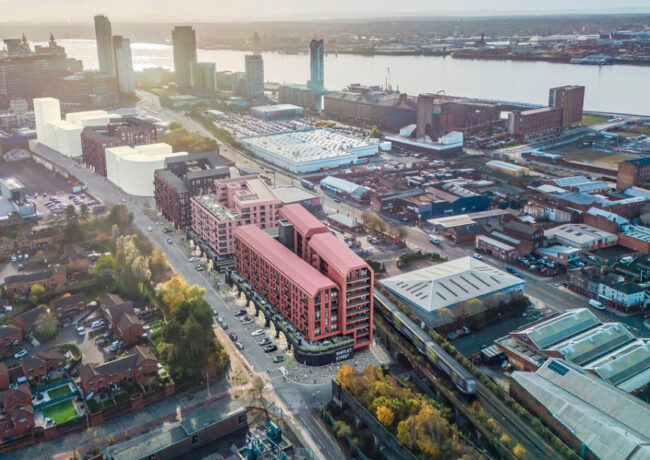OPINION | New policies fuel housing supply
 We all know that Britain’s housing market is struggling. It is one of the overriding issues of the day and a key priority for Government. Essentially, the market is plagued by a long-term lack of new homes being built, which has been driven by onerous planning rules, along with a shortage of the right skills and funding.
We all know that Britain’s housing market is struggling. It is one of the overriding issues of the day and a key priority for Government. Essentially, the market is plagued by a long-term lack of new homes being built, which has been driven by onerous planning rules, along with a shortage of the right skills and funding.
The Royal Institution of Chartered Surveyors reported another house price increase in November – the third consecutive month of price hikes – combined with a record low in the supply of houses to sell.
So demand is not driving supply. Indeed, the number of homes on the market has fallen every month since February.
It’s all part of what Chancellor George Osborne is calling the “growing crisis of home ownership in our country”, whereby ownership has been in decline for more than a decade.
But there are signs of hope that the incentives being introduced for first-time buyers will lead to an uplift in sales in the next few months: the rules on shared ownership are being relaxed and the Help to Buy scheme is to be extended.
For builders, the Chancellor announced in his half-yearly budget statement last month that the government would subsidise the sale of 200,000 new homes over the next five years at 20% below market value.
He also doubled the housing budget to more than £2bn a year with the aim of delivering 400,000 affordable new homes by the end of the decade – the biggest house building programme by any government since the 1970s, he claimed.
Clearly the financial support for buyers is going to come online more quickly than the pipeline of new property, further boosting demand while supply remains subdued, putting more upward pressure on prices in the short term.
Developers can be reassured that Lloyds Bank is already one of the biggest lenders to the UK’s real estate market and our specially trained managers stand ready to support housebuilders which are developing viable schemes in the north west.
What could prove to be as effective in accelerating the housing supply is the reform of the planning system that the Chancellor has also announced, which many will welcome.
That includes releasing public land and re-designating unused commercial land for residential development.
Housebuilders have been telling us for some time that slow planning decisions are a challenge, and Lloyds Bank has long pressed for clearer targets for local authorities on the planning process timeframe.
We are committed to helping buyers too, supporting innovative initiatives in the housing market, including Help to Buy, shared ownership and shared equity, to help more customers get on the housing ladder, and more customers move up it.
In this new positive policy environment, the housebuilding industry’s long-held ambition to build more new homes to help tackle the housing crisis is finding new fire.
This is a generational challenge, but joined-up measures like these could help to achieve a sustainable level of house-building for a more prosperous Britain.
Dave Brigden is senior manager – North West property, SME banking at Lloyds Bank Commercial Banking





Planning rules have comparatively little to do with the lack of supply. The evidence for this is the hundreds of thousands of houses across the country with planning permission but which remain unbuilt. Lloyds Bank should be taking evidence from a wider range of bodies such as independent housing experts, think tanks and the public sector. The problem with just talking just to house builders assumes that 1. they compete in a functioning market (they do not) and 2. they are motivated to increase supply (they are not). House builders are only interested in maintaining or increasing their margins, mainly through restricting supply and cutting costs (hence small, poorly built houses). Such outcomes are mutually beneficial for Lloyds Bank as they are for other City institutions and housebuilders so forgive me if I take the above ‘opinion’ piece with a pinch of salt.
What would really help increase housing supply are measures to separate the activity of land acquisition from house building; and a more proactive role for planning, giving builders certainty and the community with better quality places as outlined here http://www.rtpi.org.uk/media/1562925/rtpi_research_report_11_planning_as_market_maker_november_2015.pdf .
By PNW reader